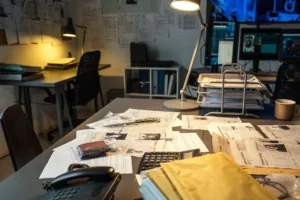Egypt’s President Abdel Fattah El Sisi and visiting Indian Prime Minister Narendra Modi signed a joint declaration upgrading relations between the two regional powerhouses to the level of “strategic partnership” on Sunday.
An Egyptian presidential statement said the signing ceremony followed talks between the two leaders in Ittihadiya, the suburban Cairo palace that is the seat of the Egyptian presidency.
The declaration of a strategic partnership is largely symbolic, with periodical consultations its main feature. However, it represents a clear indication that Cairo and New Delhi intend to pursue the potential for co-operation on a multitude of levels.
Mr El Sisi, underscoring his government’s growing appreciation of relations with New Delhi, presented the Indian leader with the Grand Order of the Nile, the highest honour an Egyptian president can bestow.
During their talks, the two leaders reviewed a wide range of fields in which Egypt and India will co-operate to push bilateral relations forward. These include telecoms, information technology, pharmaceuticals, new and renewable energy and tourism and culture, according to the Egyptian presidential statement.
They also discussed bolstering trade and increasing Indian investment in Egypt, it added.
Mr Modi arrived in Egypt on Saturday when he was received at the airport by Egyptian Prime Minister Mostafa Madbouly. The pair later held talks attended by senior government officials from both countries.
The arrival marked Mr Modi’s first visit to Egypt and the first by an Indian prime minister since 1997. Mr El Sisi has visited India three times, the last visit being in January. Both leaders took office in 2014.
Later on Saturday, Mr Modi discussed “countering extremism and radicalisation” with Grand Mufti Shawki Allam, Egypt’s top Islamic theologian, according to Arindam Bagchi, a spokesman for India’s External Affairs Ministry.

Mr Modi flew to Egypt from the United States where he held talks with President Joe Biden, delivered a speech to the US Congress and met with top American and Indian executives.
Mr Modi visited the historic mosque Al-Hakim in Cairo’s medieval quarter on Sunday. The mosque was recently renovated with the help of the India-based Dawoodi Bohra community. He was also scheduled to visit the Heliopolis War Cemetery to pay tribute to Indian soldiers who fought in the British Indian Army in First World War.
The Indian leader’s milestone visit to Washington and his much-heralded trip to Egypt underline his country’s emergence as an economic and military power. Surpassing China as the world’s most populous country has also bolstered New Delhi’s international credentials.
In contrast, Egypt, the most populous Arab nation with 105 million people, is facing a severe economic downturn that has forced authorities to devalue the country’s currency three times since early last year. Inflation is near an all-time high and a dollar crunch has hurt local industries that depend on imported inputs.
But Egypt has undertaken an ambitious, multibillion-dollar overhaul of its infrastructure, building two dozen new cities, including a new capital in the desert east of Cairo. It has also significantly expanded its network of roads, and is building a nuclear power station and monorail and fast railway links worth billions of dollars.

Egypt also plays a key role in the defence of strategic shipping lanes in the Red Sea and is among the world’s top weapons buyers. Its Suez Canal, which links the Red and Mediterranean seas, and Egypt’s traditional role as a mediator in the Israeli-Palestinian conflict add considerable weight to its regional and international standing.
When they last met in India in January, Mr El Sisi and Mr Modi agreed on a number of measures to increase the two-way trade in five years to $12 billion, up from $7.3 billion in 2021-22. They also signed deals on expanding co-operation in cyber security, information technology, culture and broadcasting.
India is one of the top five importers of Egyptian products, including crude oil and liquefied natural gas, salt and cotton. Major Indian exports to Egypt include cotton yarn, coffee, herbs, tobacco, vehicle parts, ships and boats.
More than 50 Indian companies have invested around $3.15 billion in various parts of the Egyptian economy, including chemicals, energy, textiles, garments, agribusiness and retailing, according to India’s External Affairs Ministry.
Moreover, the two counties have held a series of joint war games. They share relevant intelligence and co-ordinate counterterrorism efforts, according to Egyptian officials. In January, Indian and Egyptian troops held joint exercises in India’s Jaisalmer to bolster defence co-operation and share skills.
New Delhi has been steadily focusing on advancing its capabilities to design, develop and manufacture weapons systems under its ambitious Make In India initiative.
Egypt is looking to take advantage of these capabilities to benefit its military industry, Egyptian officials have said. Currently, under consideration, they said, is a joint project to manufacture military hardware in Egypt to mainly target markets in Africa.
“They [Egypt] are ready to work with us and they are also interested in a lot of Indian defence products,” said Ani Trigunayat, a retired Indian diplomat with years of experience in the Middle East.
As a show of India’s growing relations with Egypt, it invited the Arab nation, along with Oman and the UAE, to attend the G20 Summit in September as special guests.
Source : thenationalnews

















Add Comment